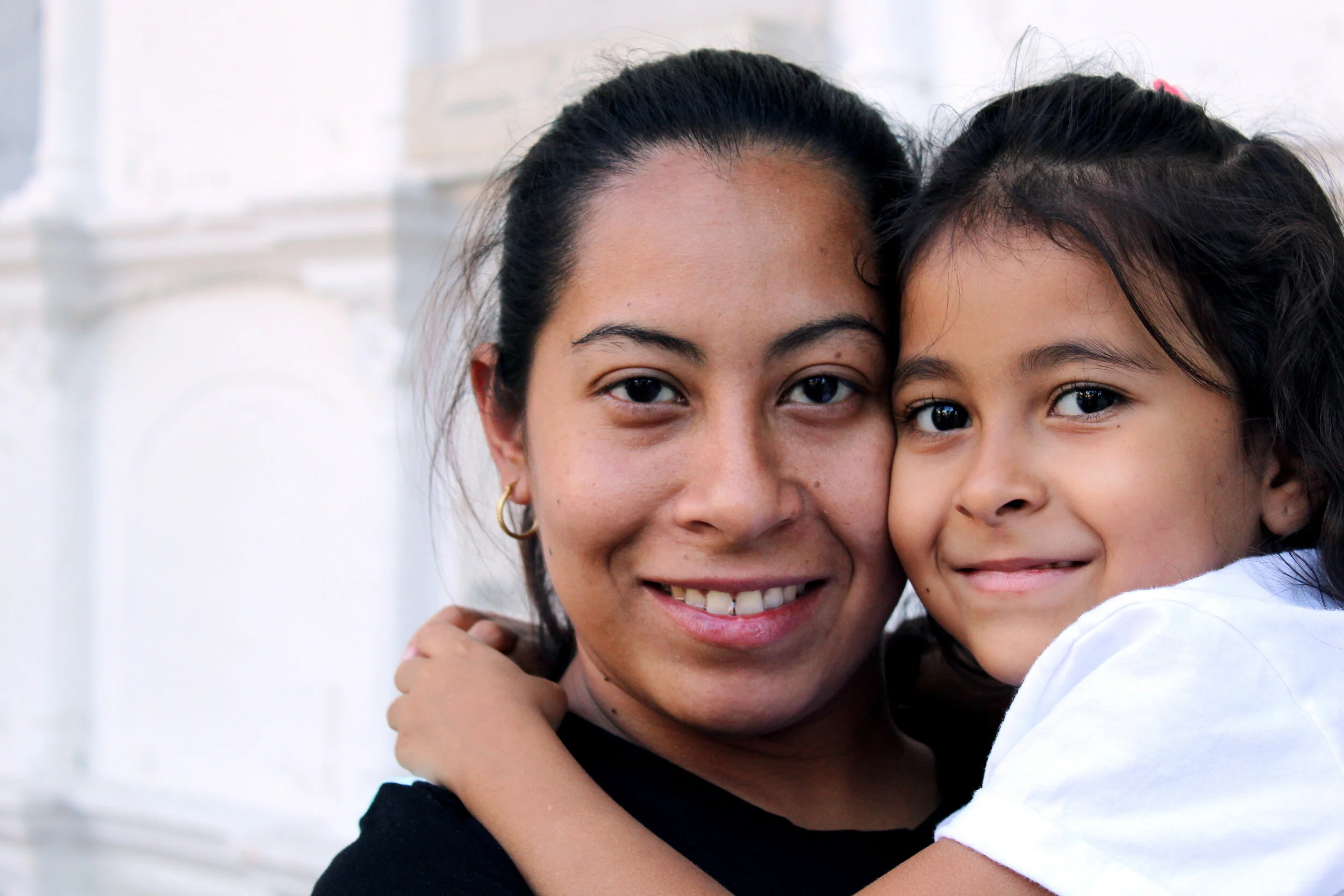Once you have made the decision to get outside help for your child’s mental health, you’re faced with an array of choices to navigate. There are all sorts of other mental health professionals standing by to help your child manage anxiety, depression, or other big feelings. How can you sort through these different labels to find the professional who can best help your child? Today, I’ll be focusing on the differences between therapists, psychiatrists, and psychologists, and the different problems that they can help children and families to overcome. By the end of this post, I hope you’ll feel more confident choosing a therapist, psychiatrist, or psychologist for your child and family.
How Can I Tell If My Child Needs Therapy?
As a parent, it can be tough to decide when exactly it’s time to reach out for help for your child. Other people might reassure you that your child’s problems are just a phase, or you may worry that seeing a therapist might make your child feel singled-out or different. I wish there were a magic checklist I could give to parents to help them decide when to contact a therapist, but it’s really a personal decision.
I believe that most of us could use someone to talk to about our problems at some point in life. Even if a problem is just temporary or a phase, therapy can help make a really difficult time in life easier and less painful to deal with—for both kids and their parents.
Here are a few general things to consider that can help you decide if and when your child could benefit from therapy:
Your child is dealing with a stressful situation in life, such as bullying, a health problem, divorce, a new sibling, or a move to a new city or school.
Your child’s problems seem to be getting worse with age, instead of better.
Tantrums last longer than you’d expect, or your child gets destructive or hits people when angry.
The emotional problems started after a trauma in the family, such as a death, accident, or abuse.
You notice big personality changes in your child: for example, your child spends most of the day in her room and has dropped out of school activities.
Your child’s anxiety seems bigger and different than other kids his own age, and it is interfering with activities like school, homework, meals, or bedtime.
It is harder for your child to make and keep friends.
Your child’s grades are dropping, or she is frequently having trouble with her behavior or paying attention in class.
If any of these things are true for your child, and your gut is telling you that a therapist could help, it’s worth making a call or sending an email to a children’s therapist. Keep reading to see what kind of mental health professional might be the best fit for your child’s needs.
When to See a Child Therapist
“Therapist” is an umbrella term for several types of mental health professionals. Most often, people who refer to themselves as children’s therapists have a Master’s degree in a mental health field like social work, marriage and family therapy, or mental health counseling. These therapists have attended a specialized 2 or 3 year graduate school program after college, as well as some time (usually 2 years) being supervised by another professional before they are allowed to practice therapy on their own.
A therapist can help a child to work through difficult situations, learn coping skills to manage strong feelings like anxiety and depression, and help families to communicate and get along better. Most therapists work directly with clients in an office setting, and they are less likely to be researchers or teachers. Therapists usually have an approach that is more practical and focused on problem-solving.
While a therapist can diagnose you and help you treat emotional or mental health problems, they can’t prescribe medication. They may also not be the best bet if you need a diagnosis for an IEP or other school accommodations: often, schools prefer to hear from a psychologist for this.
Your child might benefit from seeing a therapist if:
They need emotional support and someone to talk to about their feelings
They’re struggling with anxiety, depression, anger, or big life changes
You’d like help figuring out how to get along better with your child, and improve tough behavior
You’d like to meet with someone on a regular basis, and you’re not looking for help with medication
When to See a Child Psychologist
A child psychologist has a doctoral degree, which means they have spent about 5-6 years studying different aspects of psychology. Most psychologists also have to work under another doctor’s supervision for about a year before working on their own. Psychologists learn about human behavior, how to help clients in therapy, and also conduct research as part of their training. Because their training is more broad, psychologists can work as researchers, professors, or teachers in addition to seeing clients in an office for therapy.
If a child needs emotional support, a listening ear, and help managing big feelings, a therapist or psychologist might be equally good choices. Both therapists and psychologists have similar training in how to provide this kind of counseling.
However, psychologists are able to conduct many tests that therapists can’t, in order to help diagnose mental health and learning problems such as ADHD, autism, and learning disabilities. This can make them extremely helpful when you need more information about the source of a child’s difficulties, or if your child needs accommodations to succeed at school. Psychologists are not medical doctors, which means that they can’t prescribe medication for your child.
Your child might benefit from seeing a psychologist if:
You think your child might have a condition that affects his learning or neurology, such as ADHD, a learning disorder, or autism spectrum disorder.
Your child needs support to manage emotional or behavior problems.
You would like a more detailed diagnosis for your child, and a full picture of all the factors that might influence your child’s mental health.
One of your goals for therapy is to determine what changes your school can make to better support your child.
When to See a Child Psychiatrist
Psychiatrists are mental health providers who have a medical degree. Like other medical doctors, they attend school for 7 or more years, where they are trained in biology and chemistry as well as psychology in order to understand how different medications affect the brain. After graduation, they participate in a residency, where they work under supervision for several more years before becoming fully licensed.
Psychiatrists are the only mental health professionals who can prescribe medication. In some situations, a nurse practitioner or family doctor may be able to write prescriptions for your child, but usually, this is a child psychiatrist’s job. Because so much training is required in order to safely prescribe medication, psychiatrists—and especially child psychiatrists—are in very high demand. Child psychiatrists can see patients to help them manage medication, and they can also sometimes work as researchers or professors.
These days, most child psychiatrists see children on an occasional basis, and only manage the medication portion of a child’s treatment. While some psychiatrists also provide therapy, this is less common. Usually, a child will need to see a different professional, like a therapist or psychologist, for weekly therapy in addition to their visits with a psychiatrist.
Your child might benefit from seeing a psychiatrist if:
Your child has been in therapy for a while and is still struggling to manage their symptoms, and you wonder if medication could help them make more progress.
You need someone to help you select the right medication and dosage for your child, and keep an eye out for side effects.
Your child’s pediatrician, therapist, or another professional in your child’s life has suggested that medication might be helpful.
You aren’t sure if medication is right for your child, and you’d like to talk about your options with someone knowledgeable.
Therapists, Psychologists, and Psychiatrists:The Bottom Line
Finding someone who you and your child like, trust, and feel comfortable with is the most important part of looking for a mental health worker. The relationship you create with your therapist, psychologist, or psychiatrist is more powerful than any degree or label, and it’s the biggest factor in whether or not therapy will be helpful to your child.
One you’ve decided what type or types of professional might be a good fit for your family, look for clinicians who specialize in the difficulties your child is going through. Someone who really knows your child’s struggles inside and out is more likely to understand what your child needs in order to feel better. Trust your gut, and find a professional who helps you and your child feel comfortable, safe, and free from judgment.
If you’re looking for next steps to take, you can read more about child counseling here, or reach out to me if you’re interested in scheduling an appointment with a therapist for child counseling. Not ready for therapy? My educational course, Worry Free Tweens, can help your child learn coping skills to manage anxiety at home.




